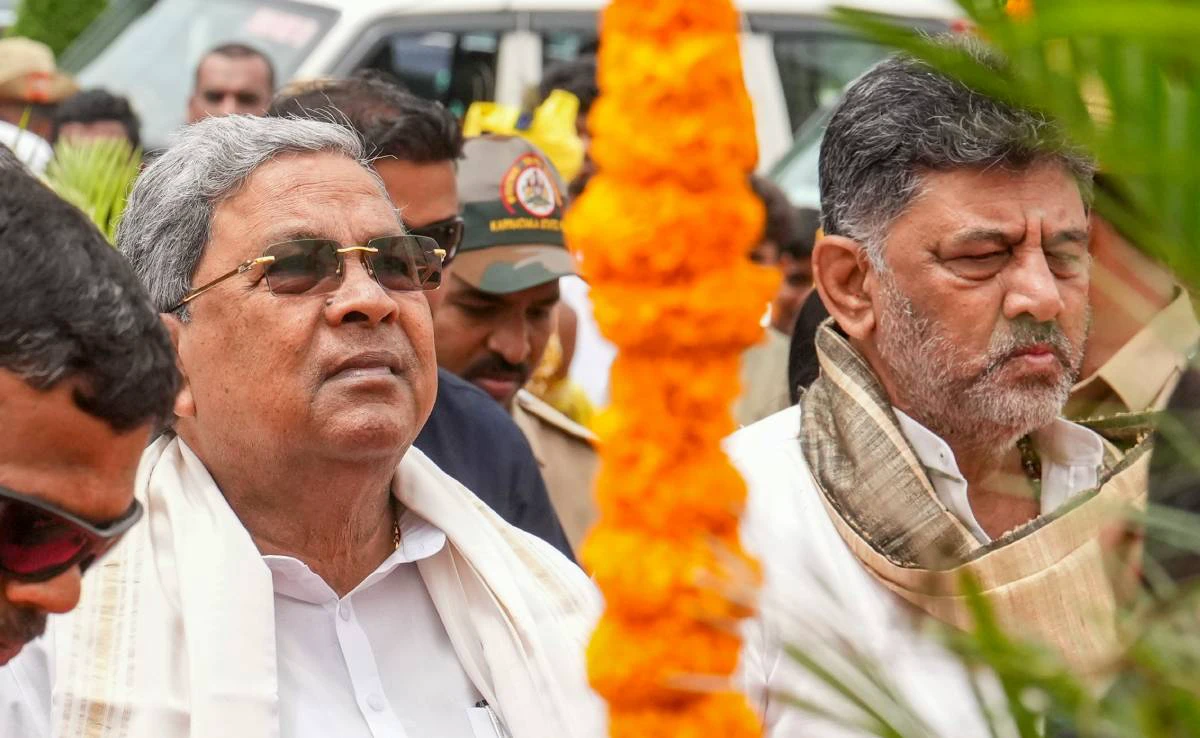Karnataka’s Health, Education, and Urban Development departments may face a 10 per cent budget cut as Chief Minister Siddaramaiah’s government tries to raise up to Rs 75,000 crore – spread over four years – for the third phase of the Upper Krishna irrigation project.
This phase will involve increasing the height of the Almatti dam from 520 to 524 metres. The raised levels will lead to around 76,000 acres of nearby land being submerged, while an estimated 58,000 acres will be needed to build canals and rehabilitate displaced farmers.
Following a special cabinet meeting this week, the government said the UKP Phase 3 project will need about 1.33 lakh acres of land in total. Compensation was fixed at Rs 40 per acre of agricultural land, Rs 30 per acre for arid land, and Rs 25 lakh per acre for irrigated land.
According to reports this is higher than amounts proposed by the previous government, i.e., the Basavarj Bommai-led administration that promised to pay Rs 24 lakh per acre for irrigated and Rs 20 lakh per acre for arid land. Farmers whose lands are needed did not accept those rates.
After the meeting Deputy Chief Minister DK Shivakumar, who is also the Irrigation Minister, said, “We have taken a historic decision on the Upper Krishna project… We will ensure land owners are protected (and) we have also decided to give more compensation to the farmers whose lands will be acquired…”
The farmers have accepted this latest offer, but on condition that all acquisition be completed and paid for within the three years it will take to complete work on the dam. That, then, puts the spotlight squarely on the state to find the money needed to complete land acquisition.
Labour Minister Santosh Lad admitted ‘there have to be certain budget cuts’. Unconfirmed media reports said the cuts could be from the Rs 80,197 crore set aside for development work, but would exclude money reserved for ‘guarantee’ schemes and committed expenditure.
“It is a very important project… we have to fund it,” Mr Lad argued.
The other option, reports said, is to hike prices where possible or reduce funding to ‘guarantee’ schemes, i.e., welfare schemes being run as part of promises made before the 2023 election.
Reports have indicated the target revenue figure, at this time, is Rs 15,000 crore, and if department-wise cuts do not yield this amount, the state might cut from ‘guarantee’ schemes.
Data indicates the government is spending Rs 51,034 crore on these schemes this year.
A final decision on this is likely soon, possibly around the next Budget session.
But neither fund-raising method will go down well with the people, particularly after the BJP-led centre overhauled the Goods and Services Tax framework to make ‘daily use’ and aspirational items cheaper, presenting it as a ‘Diwali gift’ ahead of a key election in Bihar later this year.
The fund-raising issues are only half the problem facing Chief Minister Siddaramaiah in this issue. The other is that the Finance Department has already ruled out a tax hike for next year.
This means that if the government wants to borrow – the limit has been set at Rs 1.16 lakh crore – the fiscal deficit will jump past the three per cent threshold and total outstanding liabilities will also push past an acceptable level. This will not be good news for a Congress government that is already under fire from the opposition BJP over its handling of the state finances.
That criticism has been fuelled by an audit by the Comptroller and Auditor General of India, and tabled in the state Assembly last month, which said the state borrowed nearly Rs 63,000 crore in 2023/24 and around 15 per cent of that was spent on pre-poll ‘guarantee’ schemes.
